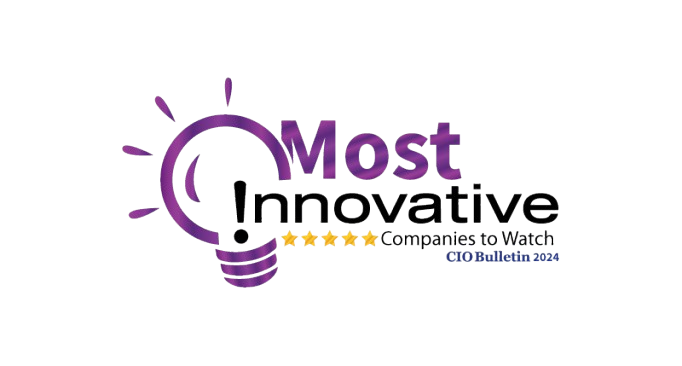11 Reasons Behind Your Sales Reps Not Closing Deals
May 7, 2022
The contribution of sales representatives in ensuring the smooth functioning of an organization is immense as their actions lead to an increase in revenue. Your sales reps help you nurture the acquired leads and convert them into loyal customers. It is their actions that directly help your business make money.
However, not every day is a great day when it comes to making sales. While your sales reps may be doing exceptionally well on some days, they may struggle to crack a single deal on the others. However, if they are consistently not able to close deals and make conversions, you may want to look into the issue. Understanding why your sales reps are not able to close deals would help you train them better and streamline their processes.
Here are 11 common reasons behind sales representatives not being able to close deals:
1. The Leads Are Not Qualified
It is important for every salesperson to be in sync with the lead management system within their organization. Once a lead is acquired, it is often scored and qualified on the basis of the prospect’s behavior towards the promotional messages. A lead is said to be qualified only if the concerned individual shows some interest in making a purchase or knowing more about the product/service being sold.
If your sales rep is reaching out to a lead that is not qualified, it is as good as cold calling an individual having no interest in making a purchase. It is, therefore, important to score, qualify, and prioritize leads before your sales reps start nurturing them. Servicing unqualified leads will only lead to your sales professionals spending their time and efforts without closing the deal. Investing in a good CRM platform would help you streamline lead management.
2. Relevant Questions Are Not Asked
Once you approach a qualified lead, it is important to ask them the right questions for closing the deal. The focus of a salesperson should always be on the product/service they are selling while taking note of the prospect’s behavior. Make sure your sales reps ask prospects about the issues they face that can be resolved by the concerned product/service. Bringing out the problem statement would always help a salesperson draw their prospects in.
On the other hand, asking irrelevant questions that are not a part of the closing strategy would only end up irritating the prospects instead of persuading them to make a purchase.
3. The Sales Rep Is A Bad Listener
Making sales and closing is an art of conversation. It is always important for a sales representative to be a great listener along with being a great talker. Being a great listener allows you to understand the context of what your prospects are talking about and steer the conversation in the right direction.
The key to a successful sales pitch is to be a good listener and understand what the customer is trying to say. Being receptive always makes the prospects more comfortable and allows you to engage with them in a more fruitful manner. If a sales rep is simply trying to get their points across without listening to their prospects, they will not be able to close deals effectively.
4. The Customers Are Forced To Buy
The last thing a salesperson should do is force the customers they engage with to make purchases. While being persuasive helps you change your customers’ minds, pushing the product/service you are selling too hard will only put them off. It may also lead to the customers losing their cool and forming a negative impression about the concerned brand.
It is, therefore, always important for salespeople to let the customers be and respect their decisions of not making purchases. An ideal sales rep would gracefully take a “no” from their customer, respectfully ask the reason behind the same, and try resolving the issue if possible. Being too pushy will only end up spoiling the deal and the reputation of the brand.
5. The Customers Do Not Trust The Sales Rep
Even if your sales reps interact with customers for a few minutes, it is important for them to develop a relationship of trust, irrespective of the final decision of the customers. A customer will only go ahead with making a purchase if they are able to trust the salespeople they are interacting with.
One of the biggest factors that prevent customers from genuinely trusting salespeople is their desperation and selfishness. If your sales rep comes across as someone who is self-centred and cares only about meeting targets, your customers think twice before making any purchase even if they like the product/service they are offering.
It is always important to put the customers on a higher pedestal and earn their trust by being as genuine as possible. If a customer is able to trust your sales rep, they would form a positive image of your brand even if they do not end up making a purchase.
6. The Sales Rep Lacks Knowledge About Closing Deals
While closing deals and making sales is an art that can be mastered over time with practice, it is also a discipline that needs to be learned. If your sales reps are not trained well before reaching out to prospects and customers, it will be difficult for them to close deals.
Always make sure that your sales reps are well-versed with the nitty-gritty details about approaching prospects, carrying themselves, understanding their requirements, and leading them to make purchases. Reaching out to the prospects without having a clue about the closing strategy and the approach to be followed is likely to result in a failure.
7. The Sales Rep Does Not Know The Product/Service Well
For the customers to believe in the product/service you are selling, it is important for you to know it well yourself. If your salesperson is not fully aware of your offerings, they would find it difficult to convince the prospects/customers they engage with.
It is common for customers to ask questions about the product or service being sold to them. If your sales rep is not able to answer them well, they may end up losing the customer and the opportunity. Especially in the case of products that are elaborate and require technical explanations, always make sure that your sales reps know the products like the back of their hands! Hitting the ground with little information would never help a salesperson close deals.
8. Lack Of Motivation
If a salesperson is not genuine engaged and driven toward their job, it would clearly show in their mannerisms. In order to make your customers have faith in your products, you need to have faith in the job you are doing. A sales rep who finds themselves dragging to work every day is likely to be indifferent to the decisions made by the customers.
Make sure your sales team is motivated and genuinely driven towards making sales and interacting with your customers to close more deals. Energy and enthusiasm are infectious. If your sales rep exudes positivity and vigor, the same would translate into closed deals!
9. Lack Of Personalization
Customers are no longer used to the traditional “one size fits all” approach to marketing and sales. They do not respond positively to messages that are generic. Customers in 2022 are looking for personalization in every stage of their buying journeys.
If your sales reps do not personalize their approach while engaging with different prospects and customers, they would fail to build a rapport with them and close deals successfully. The age-old approach of reading out a pre-written script while talking to every customer no longer helps you make sales. Instead, when your sales rep is interacting with a customer, they should do so in a way that makes the customer feel that the product/service is designed just for them. A personalized approach would always get you positive responses and increase your chances of closing deals.
10. The Sales Rep Does Not Solve A Problem
One of the biggest keys to making effective sales is to define a problem faced by your customers and provide them with a solution in the form of your product/service. When sales reps focus more on singing praises of the products/services being sold instead of solving a problem, the chances of them closing deals go down. Always make sure that your sales reps focus on addressing the issues faced by your prospects/customers and resolving the same by providing them with your products or services.
11. Lack Of A Gently Persuasive Tone
At the end of the day, the tone in which your sales rep engages with your customers can make or break the deal. Make sure the salespeople use a tone that is gentle yet persuasive while pitching your offerings to your prospects/customers.
The Final Word
These were some of the major reasons that may prevent your sales reps from closing deals. In order to close more deals and build healthy relations with your customers, make sure you personalize your sales processes and make them revolve around the specific needs and preferences of your customers.
Featured Resources
Check Our Latest Resources

Proven ROI has been recognized as one of the Most Innovative Companies to Watch 2024 by CIO Bulletin—a testament to the company’s forward-thinking approach to CRM investments and strategic partnerships. By working closely with leading CRM platforms like HubSpot, Proven ROI is revolutionizing how businesses manage customer relationships, scale their operations, and drive growth.



